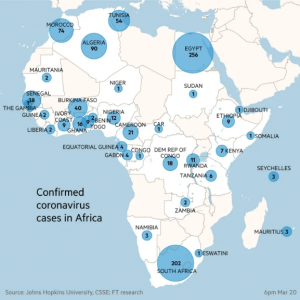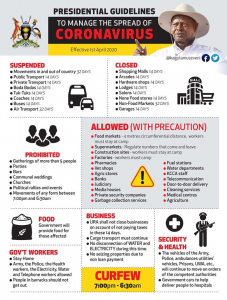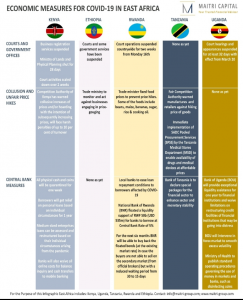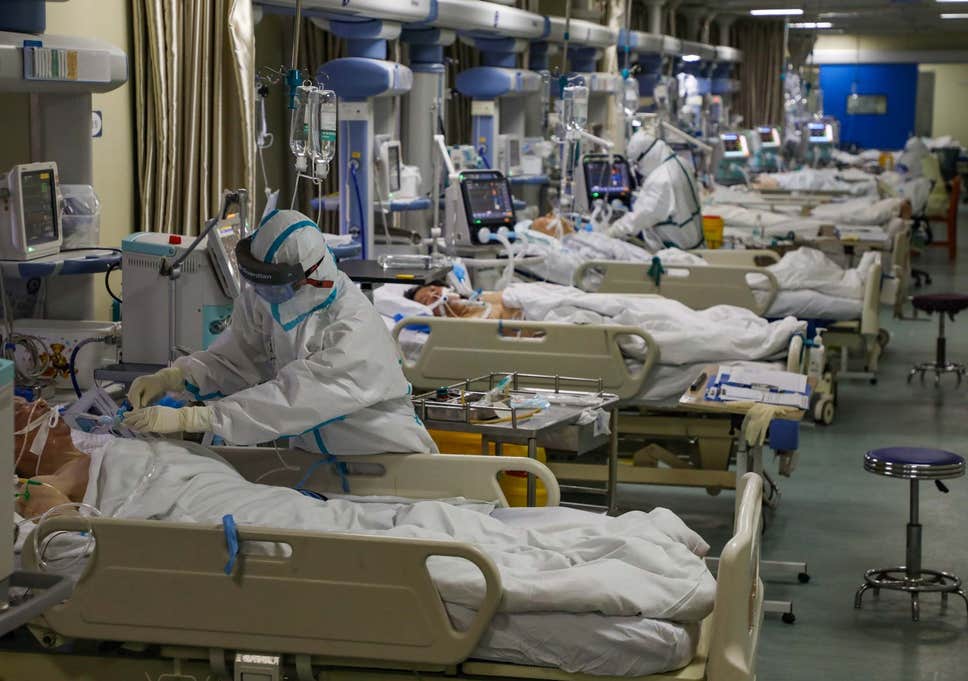Eusebius J. Mukhwana, PhD
Director General
Kenya National Qualifications Authority (KNQA)
Kenya
As an Africa, I did not believe that a pandemic can infect and affect the world the way COVID-19 has done. Let me say the truth “I thought that this was only possible in Africa,” where our health systems are rudimentary, not well funded and lacking in all the basic human resources and equipment. That a disease can affect the developed and developing world on the scale that Corona Virus has done got me off guard. As a Kenyan, I would have thought problems of this nature would have been resolved by our elder brothers in Europe, America and such other developed countries. I am therefore humbled and sympathetic to see the scale and destruction that this disease has brought to the world. From the look of things, the infection rates are still climbing, and we don’t know for how long. Clearly the world, much still Africa were not prepared for this serious calamity, whose effects will surpass those of the first and second world war combined. I have taken time to reflect and learnt the following about this disease.
Corona Virus in Africa

Figure1: Map showing cases of corona virus infection in Africa as at 21st February, 2020
Earlier in the year, when reports of the coronavirus started to emerge from China, global health officials and analysts on Africa issues stated that they were very worried about what would happen if the virus started spreading in Africa, where many health systems are already struggling. From mid-February, 2020, several countries in Africa started reporting infections with corona virus. So far (end of March) the number of reported cases remains relatively low. As at now significant numbers have been reported in South Africa, Egypt, Nigeria, Kenya; and all indications are that it is still spreading. At the start of 1st of April, 2020 there are more than over 5,250 confirmed cases of coronavirus across the continent, with 210 confirmed deaths from the virus. According to the latest data by the Africa Center for Disease Control on COVID-19 in Africa, the breakdown remains fluid as some countries lack diagnostic capacity and even communication to the national and international reporting centres. The whole of Africa has rising cases with a handful of countries holding out.
How Africa is responding

Figure 2: Measures that Uganda has put in place to manage COVID-19.
Africa has been responding aggressively to the pandemic. All Schools were ordered closed in the Nigerian capital of Lagos after only eight cases were confirmed nationwide; while Kenya closed all schools once 7 confirmed cases were reported. South Africa banned visitors from high-risk countries, closed down schools and opened drive-through testing centers in the initial stages of the disease. Within weeks, it was clear that these measures were not containing the disease, and the country has now gone into total lockdown.
Researchers agree that a widespread pandemic in Africa will cripple the continent’s fragile health-care systems and will have far reaching economic devastation. What makes the situation even more difficult is that traditional donor countries that would come to the aid of the continent are also battling and are overwhelmed by their own outbreaks. As for now it is everyone for themselves in battling this dangerous and aggressive disease. It is a situation that we have never had before.
It is noteworthy that in Africa most of the cases have been imported from Europe and probably Asia; with relatively low community transmission of the virus. This later stage, when reached will be the most difficult and challenging for the continent to deal with. The main aim of many countries now is to try and avoid community transmission, although it is becoming increasingly clear, that even with closed schools, lockdowns and closed airport, the cases of Corona virus infections are still going up in many parts of the continent.

Figure 3: Safety measures taken to contain Covid-19 in East Africa ((courtesy of Maitri Capital, 2020)
This raises questions as to whether, the measures being put in place can contain the diseases. But there is a more difficult question “can Africa deal with large numbers of this disease? Given our weak health systems, lack of health personal and equipment and without support from our traditional partners, this disease is a disaster in waiting.
Disaster in Waiting
Already the continent is experiencing economic difficulties arising from measures that it has taken to try and contain this disease. Figure 4 shows the Economic and financial measures that are being taken to contain the disease in East Africa.


Figure 4: Economic and Financial measures put in place to contain the Corona Virus (courtesy of Maitri Capital, 2020)
Managing this outbreak in Africa is not going to be a walk-in park. This is especially so given that a large number of citizens in the continent live in informal settlements (slums) and are involved in informal trade. This makes recommended interventions such as social distancing and hand-washing difficult to implement and yet, total lockdowns cannot work given that many countries do not have the capacity to feed and provide other essential necessities when citizens in are in isolation. In our setup, people to go out every day as a means of being able to feed and sustain themselves and their families. So far looking at the crisis in Africa and how countries have responded, many people think that Africa was underestimated in its preparedness, fighting spirit, genetic strength and resilience of the people to fight corona. The continent seems off to be off to a good start.
What needs to be done
So how does the continent deal with this pandemic given its weak position as indicated above?
- We need effective isolation centres:
The continent needs working and effective isolation centres, ventilators and medical staff who can isolate and attend to coronavirus patients till the immune system develops antibodies naturally.
2. Information is critical
In this era of social media where misinformation travels like wild fire there is need for a common communication centres that keeps the citizens informed and misconceptions corrected. Countries must urgently set up and manage national Corona information centres.
3. Research and Documentation
There is need for continuous analysis of case numbers, who is being affected, who is recovering and why; and what treatment is working. Given how everyone else is fumbling to deal with this problem Africa could just provide the leadership to the world on how to combat this disease.
On a wider society scale
On the wider society scale we are also learning and here are some lessons to take home
i. None of us is safe:
I have learnt with shock that none of us is safe. If one of us is affected, we are all bound to suffer. So, going forward we must aim to develop our whole human ecosystem (the world) and not our individual countries and regions. In other words, you cannot make progress if I am not making progress. We need vibrant and working health systems for everyone in the world.
ii. Our Health matters
I have had time to reflect on the investments that we have made to modernize our armies and police services, and the numbers of people that we have deployed in this sector. In many countries, little or no attention has been paid to training, deploying, and remuneration of health workers. We now can see right before our eyes that with corona, our armies and police are helpless. They cannot help us and cannot help themselves. There is need to re-think the way we manage and run our health system and make the right investments.
iii. Business must serve society needs
Those of us in Africa that got used to importing everything (clothes, food, medicine, phones, etc.) from China, Europe and the rest of the world, now realize how much we need our local farmers, our local bakeries, our small and nascent industries. It is now “everyone for himself” and God for all of us. We have killed our industries and businesses through lack of protection from our big brothers. Now in these lock downs, we realize that only local businesses and industries can respond to our needs. We need hand cloves, face masks, drugs, ventilators, sanitizers etc and our local industries are not able to produce enough. Let’s grow our local talents, businesses and industries… it is worthy it when the world stops being interconnected, the way Corona has done to us. Lastly, we must never treat health as a business. Health is a human right… that we all need to access.
iv. There must be a new beginning
Corona has and will continue to change the way we work, live and do business. None of us is safe. None of us matters more than another. We must support each other. We must respect the little things that we are all doing to support humanity. We must respect each other. Money matters, but we must preserve life. It is a humbling experience for me.
About the Author:
Dr. Eusebius J. Mukhwana is an experienced Team Leader and Manager with a demonstrated history of working in the Agriculture and Higher Education Sectors in Africa. Strong Social and Business Development Professional with a Doctor of Philosophy – PhD focused on Soil Science and Economics from University of Wyoming, USA.
Dr Mukhwana serves as a member of the Board of Directors of the Regional Universities Forum in Agriculture (an Association of 113 Agricultural Universities in Africa) RUFORUM, based in Kampala, Uganda and Vice chair of the the African Qualifications Verification network (AQVN), Co-chair of the Kenya Dual TVET Training Network (modelled on the Germany Systems) and member of the Competence Based Education and Training (CBET) Coordinating Committee in Kenya . He is a recipient of the Norman Borlaug Award for Leadership in Agriculture (2009) and Head of State Commendation (HSC) by the President of Kenya (2005) both for his pioneering role in igniting social transformation in Kenya and Africa. He is an ardent believer in the Capabilities of Africa and promotes the idea that the continent can produce more Economically and Socially to assure Prosperity for its people and the rest of the World. He currently serves as the Director General of the Kenya national Qualifications Authority (KNQA).


